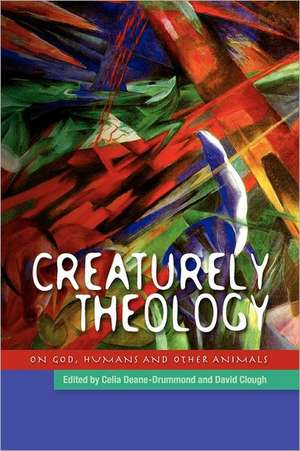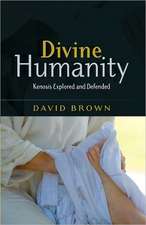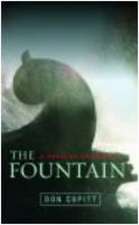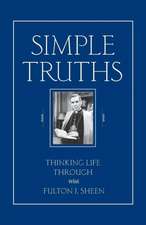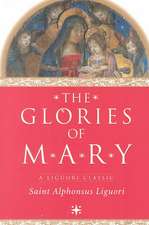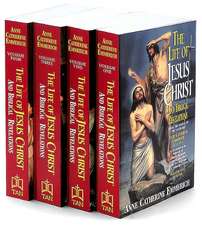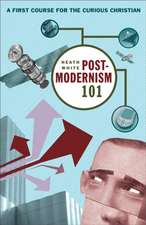Creaturely Theology
Editat de David Clough, Celia Deane-Drummonden Limba Engleză Paperback – 27 iun 2011
Preț: 293.16 lei
Nou
Puncte Express: 440
Preț estimativ în valută:
56.10€ • 58.36$ • 46.32£
56.10€ • 58.36$ • 46.32£
Carte disponibilă
Livrare economică 25 martie-08 aprilie
Preluare comenzi: 021 569.72.76
Specificații
ISBN-13: 9780334041894
ISBN-10: 0334041899
Pagini: 294
Dimensiuni: 152 x 231 x 25 mm
Greutate: 0.41 kg
Editura: SCM Press
Locul publicării:United Kingdom
ISBN-10: 0334041899
Pagini: 294
Dimensiuni: 152 x 231 x 25 mm
Greutate: 0.41 kg
Editura: SCM Press
Locul publicării:United Kingdom
Recenzii
'Amidst a sweeping ground swell of posthumanist and other interdisciplinary challenges to the comfortable boundaries we humans have constructed between nature and culture, nature and technology, the human and the machine, also the rigid barriers erected between genders, species, humans and God, comes this truly groundbreaking book, a book with many voices that responsibly deconstructs the age-old boundary between humans and animals. Into a field almost completely devoid of specific theological contributions now steps this outstanding anthology. In spite of its exciting and diverse group of authors the book quickly acquires its clear identity as a 'theology of God's creatures,' and in focusing on the human/animal relationship as well as the ambiguous role of animals in Christian theology, this anthology presents a radical revisioning of theological anthropology. And in developing a philosophy and theology for non-human animals the authors go beyond the ethical challenge and present the reader with a theological recognition of animal rights, based on a clearly defined moral priority for the weak, in our care for animals. Thus we find a theology for compassion of animals where animals might become agents of justice and we are forced to rethink and recover our liturgies of animal care. Some authors want to go further in proposing a much deeper theological and spiritual tradition which would include animals, while recognizing the anthropocentrism that might hover in the background. Here the next step would truly be a complete theology of inclusion, where notions of the image of God are extended to animals in a contemporary theology of redemption of all animals. For anyone wondering how to think religiously about animals this paradigm-shifting book will be a serious but exciting challenge. On a more interdisciplinary level it proposes a deeply serious philosophical and theological challenge of the boundary between the human and the non-human in evolutionary terms, precisely the kind of questions that are now fully engaging primatologists, archeologists, and paleontologists, as they too probe the morality of animals. The carefully selected essays in this book present us with a sophisticated and nuanced broad scope of issues with transversally integrated arguments that will draw in readers from all disciplines and perspectives. I am happy to very strongly recommend this book.' -- J. Wentzel van Huyssteen D.Th., MA Phil. James I. McCord Professor of Theology and Science Princeton Theological Seminary. 'No one can live a moral life in today's world without asking difficult questions about how we should treat the non-human animals with which we play, which we eat or cultivate, or whose habitats we destroy. This is an timely and invaluable guide to approaching these questions from a distinctively theological perspective. The editors and contributors to this volume have done the Christian community an enormous service in tracking a range of traditional approaches while also opening up some radical and deeply imaginative ways of thinking theologically about our fellow creatures. These both illumine our own self-understanding as human beings and make an important contribution to how we conceive of the common good.' -- Oliver Davies Professor of Christian Doctrine, King's College London
Notă biografică
Professor Celia Deane-Drummond is Professor of Theology and the Biological Sciences and Director of the Centre for Religion and Bioscience at the University of Chester.Dr David Clough is Senior Lecturer in Theology at the University of Chester.
